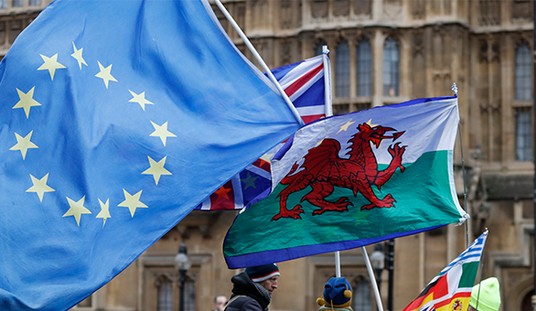A bit of palate-cleansing video candy from our Townhall cousins, Guy Benson and Katie Pavlich. As I write this, I’m watching Gregory Jaczko of the Nuclear Regulatory Commission on CNN defend his dire warning earlier about “extremely high” radiation levels necessitating a 50-mile evacuation zone around Japan’s nuclear plant. Meanwhile, on ESPN.com, there’s video of Obama explaining why the Jayhawks are the team to beat. I don’t begrudge him a little lightheartedness or “down time” even during a major crisis, but if he’s going to devote 10 minutes to tournament picks, how about a 10-minute address from the Oval Office presenting the facts about radiation to a public that’s increasingly jittery about the news? People are stockpiling iodide tablets to minimize a risk they’ll almost certainly never have to face. Obama could help put them at ease by giving them the hard data — Chernobyl was much worse, the threat to the U.S. is negligible, we routinely endure much greater health problems (like … obesity!) without a second thought. This is no idle wish for a hug from a daddy president, either; stress from anxiety about radiation was actually a huge health problem in its own right after Chernobyl and, given the reports about stockpiling, is apt to be so again this time. From WaPo:
“The psychological effects were the biggest health effects of all – by far,” said Fred Mettler, a University of New Mexico professor emeritus and one of the world’s leading authorities on radiation, who studied Chernobyl for the World Health Organization. “In the end, that’s really what affected the most people.”
Fears of contamination and anxiety about the health of those exposed and their children led to significantly elevated rates of suicidal thinking and anxiety disorders, and rates of post-traumatic stress disorder and depression about doubled, Mettler and others said.
“The effect on mental health was hugely important,” said Evelyn Bromet, a professor of psychiatry at Stony Brook University who studied the aftermath of Three Mile Island and Chernobyl. “People’s fears about getting cancer, or their children getting cancer, and family and friends dying from radiation exposure were very intense.”…
In fact, radiation is a far less potent carcinogen than other toxic substances. Studies of more than 80,000 survivors of the Hiroshima and Nagasaki blasts have found that about 9,000 people subsequently died of some form of cancer. But only about 500 of those cases could be attributed to the radiation exposure the people experienced.
There’s only one person in America with a megaphone big enough to beam that reality check out to most of the population. (Okay, two.) How about it, champ? Maybe squeeze in a little impromptu presser during the dinner break in tomorrow’s first-round games?








Join the conversation as a VIP Member